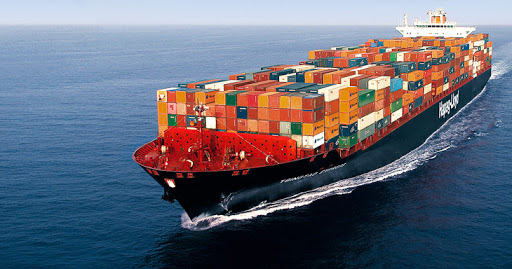Maritime Law
Maritime Trade Law; Throughout history, states have tried to benefit from the advantages provided by maritime trade. Trade carried out through waterways and maritime transportation has enabled countries to develop economically. As a result of this development, the necessity of organizing maritime trade and determining commercial difficulties and finding solutions has arisen. The question of what is maritime law can be defined in this context. Maritime law is the branch of law that deals with legal problems arising in matters related to the use of sea and ocean waters. The sharing of seas and oceans by sovereign states and crimes committed in these regions are within the scope of maritime law.
After defining maritime law, the question of what is maritime trade law comes to mind. The regulation of problems arising in the security and reliability of ships, seamen and the people or cargo carried has constituted maritime trade law.
Maritime trade law is included in the Maritime Trade title of the Turkish Commercial Code. According to the law, any vehicle that requires movement in water, has the ability to float and is not very small, even if it does not have the ability to move on its own, is considered a “ship” for the purposes of this law.
Any ship that is allocated for the purpose of providing economic benefit on water or is actually used for such a purpose is considered a “commercial ship” regardless of who uses it and on whose behalf or account it is used. Commercial ships are included in the scope of maritime trade law.

The scientific principle accepted in maritime is due to the fact that people’s thought systems are based on reason and reality. The rational approach based on facts has revealed that all actions and therefore rules in maritime trade are based on many reasons. Maritime trade law is quite extensive in terms of legislation. Therefore, maritime trade law is a field where expertise can be gained with a master’s degree or practical application.
In order to solve the problems that arise with the use of sea and sea resources by states, the issues have reached an international level with international agreements. Maritime trade law is not included in a single legislation as PDF. Maritime law, which is regulated in the Turkish Commercial Code and other national legislations, is also regulated by international agreements. Agreements to which our country is a party:
- -Montreux Convention,
- -International Convention on the Unification of Certain Rules Relating to Mortgages and Privileges of Maritime Trade Vehicles,
- -International Convention on the Unification of Certain Rules Relating to Limitation of Liability of Shipowners,
- -International Convention on the Unification of Certain Rules Relating to Bills of Lading,
- -Convention on Limitation of Liability for Maritime Claims,
- -Convention on the Unification of Certain Rules Relating to Maritime Assistance and Rescue,
- -International Convention on the Unification of Certain Rules Relating to Immunities of State Ships,
- -Convention on the Establishment of the International Maritime Organization,
- -International Convention on Civil Liability for Damage Arising from Oil Pollution,
- -Regulations for Preventing Collisions at Sea,
- -Unification of Certain Rules Relating to Maritime Interdiction It is a contract.
Maritime law is an area where Kaan KOÇALİ has provided consultancy and resolved disputes many times.
Providing legal assistance and attorney services on establishing a mortgage on a ship and all other issues where maritime law is applicable. Participating in international commercial negotiations and representing, evaluating contracts from a legal perspective and reporting and legal follow-up of the contract process, damage assessment, review of detection reports, services related to customs law, ship owner’s responsibilities to the cargo, ship owner’s responsibilities to the personnel, seaman’s responsibilities, collision, liabilities arising from grievances related to the reason for attachment, disputes arising from insurance obligations and violations, liabilities for damages and accidents resulting from fault, abuse of duty, negligence and violation, lien on the ship and cargo, general average, (C/P disputes, preparation of C/P, Type C/P) giving legal opinions on bills of lading, making changes deemed necessary, mediating in the resolution of disputes arising from freight contracts, collision, damage, loss, damage to the cargo, determining the law to be applied in case of a dispute, ship arrest, salvage of a detained ship, lawsuits arising from various receivables related to maritime law, international trade and transportation, Preparation of contracts, ship financing and seizures, seizure of ships, maritime trade and logistics contracts, other losses, bankruptcies in the maritime sector, and provision of litigation are some of the maritime trade issues we provide legal support for.
In order to provide consultancy services in the field of maritime trade law, national and international legislation follow-up is important. Among the applications that fall within the scope of the Maritime Trade Law test, the most common applications we encounter and have experience in are the problems that arise regarding the cargo carried by the ship. Damage to the cargo during transportation or damage to the transport vehicle, damage caused by collisions require

